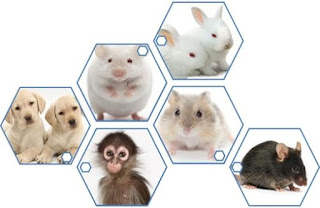The Development of a potential vaccine
How Are Potential Vaccine Developed?
Before going into the topic we should know what is vaccine..
It is a substance which is injected in animal/human body to stimulate or trigger the production of antibodies and build up immunity against one or many diseases. It typically contains agents that replicate the disease causing microorganism which are in dead or deactivate form.

|
| Image Source - Google | Image by - Nick Youngson |
Current need of vaccine
In this current situation of pandemic pace of life have slowed down. People
are unable to interact with each other physically and life have shifted to
virtual world. The only hope left to get out of this pandemic is the
development of vaccine.
But is it that much easy to make a vaccine?
The answer is no. We will see what it takes to develop a potential vaccine and
the amount of time and research required for it.
Vaccine development Is a long process and it has to go thorough the
following stages..
Exploratory stage
This stage includes an extensive expropriation/search process to find
synthetic or natural antigen that can help to prevent or treat a disease.
These antigens may be weakened strains of disease causing microbes. This
process may take time of 2 to 4 years.
But in recent years with the advancement of technology, different
machine learning models are adopted which are AI(Artificial Intelligence)
based to replicate the immunogenic response and make the process faster.
The most effective ones are sorted out to carry further trials .
Pre-clinical trials
Scientists and researchers starts testing on animals and also with tissue
culture system. Animals on which research are mostly done are monkeys and
mice. These trials are conducted on animals as Humans share at least 90%
of their Genes with every other mammals and also have same vital organ
including brain, lungs, heart, kidney and liver. Thus it becomes easy
for the researchers to predict the immune response in human body.

|
| Image Source - Google | Image by - Ehua Ruikang International Health Consulting |
When the expected immune response is attained the next goal is to find safe
starting dose for the upcoming phase and also the method to administer the
vaccine into human body. This trials generally takes 1-2 years in which
different experiments are conducted like to vaccinate an animal and then
infecting it with pathogen.
Clinical study on human
Phase 1 trial
A small group of people usually 20-60 is vaccinated with the first dose and
extra caution is advised when it is administered for the first time in human
as there can be risk of hypersensitivity. Phase one trial generally last for
6-12 month with strong subject tracking.
It also becomes clear whether the expected immune response is achieved or
not with the generation of antibodies.
Phase 2 trial
This trial include several hundred people living in a medical condition in
which medication is meant to treat the subject. Trial is randomized and also
include placebo ( vaccine with no physiological effect but rather for
psychological benefits ) , subjects are well tracked and monitored for few
months or years to find how effective the vaccine is and if any side effects
is generated.
Phase 2 trial may include subject from a particular region and thus the
overall safety of the vaccine is still not confirmed.
Phase 3 trial
Phase 3 involve thousands of subjects and the trials are carried out in the
different parts of the world as to eliminate any possible loophole.
Objective of this phase is to ensure the safety and note any rare side
effect or long term effect which might not come up in phase 1 or 2 trials.
Thus vaccine development is a long process lasting several years however with
advancement of technology in machine learning and artificial intelligence the
time duration has reduced.
Accelerating the process in order to win the race of vaccine development may sometime compromise with the safety and could not be able to catch up the long term health problem created by the vaccine.
Accelerating the process in order to win the race of vaccine development may sometime compromise with the safety and could not be able to catch up the long term health problem created by the vaccine.














No comments: